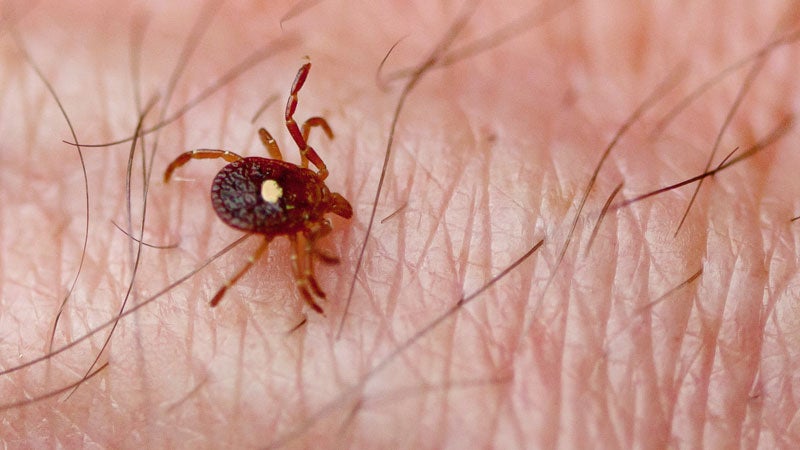There are plenty of reasons to fear ticks鈥擫yme disease,, general aversion to blood suckers. Here's another one to add to the list: severe and sudden allergies to red meat.
In September, Norman was camping with her husband in Falls Creek Falls Tennessee. At 3 a.m., she woke up with hives. She and her husband drove five miles to get cell service, and the 911 operator they called told them to stay put. “By the time the ambulance got there my throat was pretty closed up, and I had hives completely,” Norman says. “They told me I would not have made it if we had driven.”
The cause of the reaction? A tick that had bitten her six weeks earlier and a steak she'd eaten for dinner that night.
Across the American Southeast, and in parts of Europe and Australia, doctors are treating patients with sudden, potentially fatal allergies to red meat that researchers believe are caused by bites from specific types of ticks. In the U.S., it's the Lone Star Tick.
“These bites are really common, especially in places where there are tons of these ticks, in the Southeast particularly,” says. “The vast majority of people don't get this. But it is on the list of things that can come from tick bites.”
Here's how researchers believe it works: When a Lone Star tick bites a person, it introduces something called alpha-gal sugar into the bite. Some bitten patients become allergic to the sugar, which is also found in red meat. For those patients, eating alpha-gal can cause hives, lip or tongue swelling, or anaphylaxis, a potentially deadly allergic reaction that can cause the throat to close or blood pressure to drop.
Symptoms tend to appear four to six hours after eating red meat, and sometimes even dairy, and reactions tend to occur weeks or even months after a patient was bitten.
“Within the Southeast鈥t's up there with peanut allergies and shellfish allergies,” Valet says. About one percent of the patients who visit the Vanderbilt Asthma, Sinus and Allergy Clinic are coming in with the allergy. Dr. Platts-Mills, who lead the UVA study and has the allergy himself, that this particular tick is “very aggressive. Its larval forms will bite humans, whereas none of the other American tick larvae will do that.”
If you're wondering why you've never heard of it, researchers at the University of Virginia published the first study linking ticks to the allergy in 2009. “We've really only been testing for it in the last couple of years,” Valet says.
It's also fairly rare in comparison to other tick-borne disease like Lyme disease, which reports about 25,000 new cases a year; so far, UVA has recorded only about 1000 cases of the tick-related allergy.
But that doesn't mean there's no reason to be careful, particularly if you live or hike in areas of Tennessee, Virginia, or North Carolina, though as far north as Maine and as far West as Nebraska鈥攁nd bit-related allergies have been reported in states like New York and .
There's also no cure. Beyond carrying an Epipen and trying to avoid ticks to begin with, there's not a lot you can do. Though some allergies do go away on their own, it's a safe bet that most people who get it won't be eating red meat again, and some like Norman鈥攁bout 30 percent of those with the allergy鈥攁re also allergic to dairy. In severe cases, it can also cause an allergy to gelatin.
But this isn't the kind of disease you need to get tested for. “It's kind of one of those things that will happen and it will be obvious,” Valet says.


